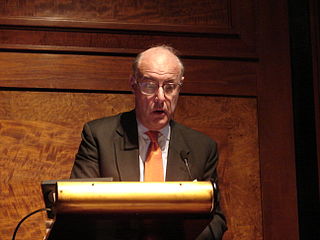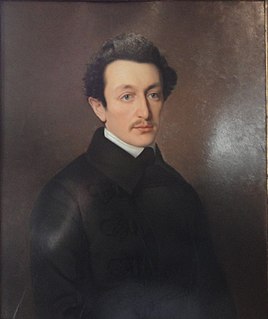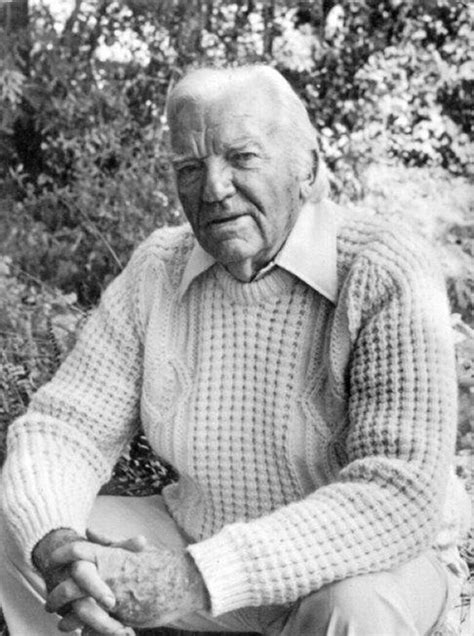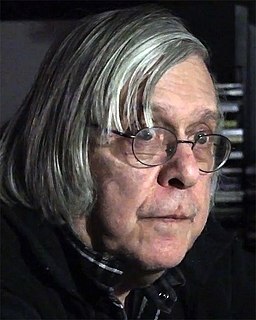Top 1200 Historical Quotes & Sayings - Page 2
Explore popular Historical quotes.
Last updated on November 8, 2024.
I have rarely read a more wonderful book than To Win Her Favor by Tamera Alexander. Rich with historical detail and fully developed characters, this novel held me spellbound until the last page. If you read one historical novel this year, make it To Win Her Favor. It will linger with you long after the last page.
I was trained as a philosopher never to put philosophers and their ideas into historical contexts, since historical context has nothing to do with the validity of the philosopher's positions. I agree that assessing validity and contextualizing historically are two entirely distinct matters and not to be confused with one another. And yet that firm distinction doesn't lead me to endorse the usual way in which history of philosophy is presented.
Economy and ideology. The claim (presented as an essential postulate of historical materialism) that every fluctuation of politics and ideology can be presented and expounded as an immediate expression of the structure, must be contested in theory as primitive infantilism, and combated in practice with the authentic testimony of Marx, the author of concrete political and historical works.
[T]he visibility of styles is itself a product of historical consciousness. ... The very notion of "style" needs to be approached historically. Awareness of style as a problematic and isolable element in a work of art has emerged in the audience for art only at certain historical moments - as a front behind which other issues, ultimately ethical and political, are being debated.
All knowledge that is about human society, and not about the natural world, is historical knowledge, and therefore rests upon judgment and interpretation. This is not to say that facts or data are nonexistent, but that facts get their importance from what is made of them in interpretation… for interpretations depend very much on who the interpreter is, who he or she is addressing, what his or her purpose is, at what historical moment the interpretation takes place.
Cultural concepts are one of the most fascinating things about historical fiction. There's always a temptation, I think, among some historical writers to shade things toward the modern point of view. You know, they won't show someone doing something that would have been perfectly normal for the time but that is considered reprehensible today.
The Bible is an ancient text from an ancient context. We live thousands of miles and thousands of years away from that context, which also represents different cultures. Archaeology is a modern means of revealing both the lost record of the ancient world, and the historical and social world of the Bible. While the purpose of archaeology is not to prove the historicity of the people and events recorded in Scripture, it can help immeasurably to confirm the historical reality and accuracy of the Bible and to demonstrate that faith has a factual foundation.
I can honestly say that there are many forms of atheism that I find far more admirable than many forms of Christianity or of religion in general. But atheism that consists entirely in vacuous arguments afloat on oceans of historical ignorance, made turbulent by storms of strident self-righteousness, is as contemptible as any other form of dreary fundamentalism. And it is sometimes difficult, frankly, to be perfectly generous in one’s response to the sort of invective currently fashionable among the devoutly undevout, or to the sort of historical misrepresentations it typically involves.
The heart of Christianity is a myth which is also a fact. The old myth of the Dying God, without ceasing to be myth, comes down from the heaven of legend and imagination to the earth of history. It happens - at a particular date, in a particular place, followed by definable historical consequences. We pass from a Balder or an Osiris, dying nobody knows when or where, to a historical Person crucified (it is all in order) under Pontius Pilate. By becoming fact it does not cease to be myth: that is the miracle.
I do like the idea of the novel of repressed college students being a contemporary novel of courtship! I guess what I would say to that is, we tend to think of historical periods and historical mores as ending a lot more concretely than they do. Like, in an Austen novel, there are lots of reasons - cultural, moral, religious - why the characters don't have sex during courtship. Maybe, even though those reasons have kind of expired, historically, they're still around in some sense.
Like sex, poverty and power, suicide may always be with us. But like them again, the actual form is takes is essentially time-specific and culture-bound, not only in the past but in the present too. The people who took their lives, the paths which led them to that end, and the experience of dying in this way were deeply influenced by specific historical circumstances. Only by making a greater effort at historical understanding can this most secret house of death be made to yield up more of its confidences.
Later, I went one step further, by putting in some invented "historical" bits [into the Lincoln in the Bardo]. And reading those alongside the actual historical bits was like looking into a sort of a painful mirror, because "my" parts were so show-offy at first. They stood out because they were so flamboyant.
With a historical novel you know that liberties are being taken. Since Walter Scott, we know that poetic license, dramatic license, that events been conflated and that liberties have been taken, characters ditto, dates rearranged. But people don't seem to understand that movies are fictions, they are dramatizations, at least historical movies, and we should accord the moviemakers some of the same understanding and latitude. When you go to a movie you know it's a dramatization and not history.
'Believing' cannot tip the scales in making a historical judgement about whether something really happened. I can choose to believe that George Washington threw a silver dollar across the Rappahannock, but my believing that he did it has nothing to do with whether or not he really did do it. So also with the story of Jesus walking on water: Believing that he did it has nothing to do with whether he really did do it. 'Belief' cannot be the basis for historical conclusions; it has no direct relevance.
The facts which our senses present to us are socially performed in two ways: through the historical character of the object perceived and through the historical character of the perceiving organ. Both are not simply natural; they are shaped by human activity, and yet the individual perceives himself as receptive and passive in the act of perception.
There are dozens of writings outside of the Bible that verify the historical accuracy of many of the names of people, places, and events mentioned in the Bible. In fact, external sources verify that at least eighty persons mentioned in the Bible were actual historical figures. Fifty people from the Old Testament, and thirty people from the New Testament.
Writers of historical fiction are often faced with a problem: if they include real-life people, how do they ensure that their make-believe world isn't dwarfed by truth? The question loomed large as I began reading 'The Black Tower', Louis Bayard's third foray into historical fiction and fifth novel overall.
For we cannot adequately understand 'man' as an isolated biological creature, as a bundle of reflexes or a set of instincts, as an 'intelligible field' or a system in and of itself. Whatever else he may be, man is a social and an historical actor who must be understood, if at all, in close and intricate interplay with social and historical structures
If you write a post and put it on a blog, that's a historical document. If you change your template, then that entry looks completely different. It's the same words, but not the same meaning. This all depends on what historical questions that people will be asking and we can't know what they will want.
For film, I think because it's more detailed, and especially with historical material, you really have to find the right projects. Speaking as a mixed-race woman, there aren't many historical stories about people like me. When people think of 'dual heritage,' they think it's a modern concept, but really it's not.
Africans and persons of African descent must assume the primary responsibility and leadership in historical research....if we are to continue to leave practically all important historical research and writing concerning the black race to the white man, then we must be prepared to accept, uncomplainingly, the white man's point of view.
It is important to insist on the historical truthfulness of the narrative of the fall of Adam and Eve. Just as the account of the creation of Adam and Eve is tied in with the rest of the historical narrative in the book of Genesis, so also this account of the fall of man, which follows the history of man's creation, is presented by the author as straightforward, narrative history
This general tendency to eliminate, by means of unverifiable speculations, the limits of the categories nature presents to us is the inheritance of biology from The Origin of Species. To establish the continuity required by theory, historical arguments are invoked, even though historical evidence is lacking. Thus are engendered those fragile towers of hypothesis based on hypothesis, where fact and fiction intermingle in an inextricable confusion.
I have to write three books a year to make a reasonable living out of writing - unless, of course, she gets a major American film deal. Phryne has been optioned since the very first book, but to make a historical TV movie, it costs $30,000 a day extra for the historical detail to be correct, so most people aren't doing it.
I'm actually the chairman of the historical foundation [in Franklin] called the Heritage Foundation in Franklin. We've got a pretty good group of folks, very influential folks, who are really striving to protect those lands and so far we're not having a lot of problems. We're growing too fast. Everybody wants to put up some sort of neighborhood but that's our biggest battle. Nobody's really trying to go on any of the historical land.
Dialectical logic undoes the abstractions of formal logic and of transcendental philosophy, but it also denies the concreteness of immediate experience. To the extent to which this experience comes to rest with the things as they appear and happen to be, it is a limited and even false experience. It attains its truth if it has freed itself from the deceptive objectivity which conceals the factors behind the facts - that is, if it understands its world as a historical universe, in which the established facts are the work of the historical practice of man.
The study of the Life of Jesus has had a curious history. It set out in quest of the historical Jesus, believing that when it had found Him it could bring Him straight into our time as a Teacher and Saviour. ... But He does not stay; He passes by our time and returns to His own... He returned to His own time, not owing to the application of any historical ingenuity, but by the same inevitable necessity by which the liberated pendulum returns to its original position.
It is clear, from these considerations, that the three methods of classifying mankind-that according to physical characters, according to language, and according to culture-all reflect the historical development of races from different standpoints; and that the results of the three classifications are not comparable, because the historical facts do not affect the three classes of phenomena equally. A consideration of all these classes of facts is needed when we endeavour to reconstruct the early history of the races of mankind.
[Sacrifice of Isaac] is a major theme of the so-called Elohist [one authorial strand in the Pentateuch]. It is marked by all of his linguistic characteristics, and so on. We cannot determine what is historical and what isn't. As literary critics, we would understand the importance of this for understanding life, destiny. But the historical question must be left with a question mark.
It is, let me say, at the very least by no means self-evident that there is more liberty, equality, and fraternity in the world today than there was one thousand years ago. One might arguably suggest that the opposite is true. I seek to paint no idyll of the worlds before historical capitalism. They were worlds of little liberty, little equality, and little fraternity. The only question is whether historical capitalism represented progress in these regards, or regression.
Our knowledge of the historical worth of certain religious doctrines increases our respect for them, but does not invalidate our proposal that they should cease to be put forward as the reasons for the precepts of civilization. On the contrary! Those historical residues have helped us to view religious teachings, as it were, as neurotic relics, and we may now argue that the time has probably come, as it does in an analytic treatment, for replacing the effects of repression by the results of the rational operation of the intellect.
Historical romance is still very strong in the market. Writers of historical romance are making the bestselling lists on a regular basis and careers are growing. However, since there is much more variety in romance today, the total sales of historicals might be down from their peak. The talk of the market softening is a reflection of this, and of the fact that one does not see big growth in this area of the market.
The annual award of $5,000 goes to an author for a meritorious book published in the previous year for children or young adults. Scott O'Dell established this award to encourage other writers--particularly new authors--to focus on historical fiction. He hoped in this way to increase the interest of young readers in the historical background that has helped to shape their country and their world.
[...] He didn't want his wife to read historical romances because it might give her unrealistic expectations. [...] If I had been him, I would have been reading your books every time you laid them down to see how I could improve my skills and please you. Second warning of the night. I bought a couple." You bought a couple of what?" Historical romances. I'm three-quarters through the first one." He flashed her a slow grin. "All I can say is, I like the way your mind works." ~Jake Coulter and Molly Wells
The reason we've been growing at 1.8 percent for the last eight, ten years, which is way below the historical average, is in large part because of our tax code. It is important to us to get the biggest, broadest tax reduction, tax cuts, tax reform that we can possibly get because it's the only way we get back to 3 percent growth. That's what's driving all of this, how do you get the American economy back on that historical growth rate of 3 percent and out of these doldrums of 1.8, 1.9 that we had of the previous Barack Obama administration?
Since many people have been asking me to elaborate on why I think "Inglourious Basterds" is akin to Holocaust denial, I'll try to explain what I mean as succinctly as possible, by paraphrasing Roland Barthes: anything that makes Fascism unreal is wrong. For me, "Inglourious Basterds" makes the Holocaust harder, not easier to grasp -- as a historical reality, I mean, not as a movie convention. Insofar as it becomes a movie convention, it loses its historical reality.

























































